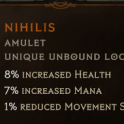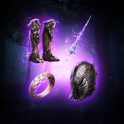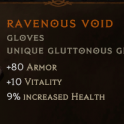Last Epoch Items
Items in Last Epoch are at the heart of character development and progression. Whether you're fine-tuning your endgame build or just starting out, your gear determines your character's power, survivability, and efficiency. The hunt for valuable loot has always driven ARPGs, and Last Epoch is no exception. From crafting your perfect item to trading for that one upgrade you've been chasing, items are everything.
Below is a breakdown of item types, rarity, and categories, giving you a comprehensive overview of what to expect - and what to hunt for.
Item Rarity Tiers
- Common (White): Basic gear without modifiers. Often useful only as base crafting material when it has high Forging Potential.
- Magic (Blue): Offers 1–2 modifiers. Early-game viable or used for crafting bases.
- Rare (Yellow): Contain 3–4 modifiers and are the backbone of most builds before finding higher-rarity gear. High Forging Potential rares are extremely valuable.
- Exalted (Purple): These drop with one affix above the normal maximum tier. They're best used as bases for crafting powerful Legendary items.
- Unique (Orange): Items with pre-defined affixes that often enable specific builds or playstyles. Some have Legendary Potential, allowing them to be fused with Exalted items.
- Set Items (Green): Provide extra bonuses when worn together. Some sets are strong leveling tools or early endgame options.
Item Types & Equipment Categories
Weapons
- Melee Weapons: Swords, axes, daggers, spears, maces—great for up-close damage.
- Ranged Weapons: Bows and throwing weapons for distance builds.
- Mage Weapons: Staves and scepters, ideal for spellcasters or Intelligence-based builds.
Armor
- Helmets, Body Armor, Gloves, Boots, Belts: Provide defense and bonuses tailored to your build. Crafted gear can offer massive synergy if planned well.
Accessories
- Amulets & Rings: Crucial for build-defining modifiers such as critical chance, resistances, or skill-specific boosts.
Relics
- Endgame items that add powerful unique bonuses and often enable high-tier builds.
Idols
- Slotted into a dedicated grid. They grant passive bonuses and come in various sizes and types. Some are generic, while others are class-specific and support niche builds.
Off-Hands
- Shields: Boost block chance and defense—great for tanky melee setups.
- Quivers: Required for bows; grant damage and skill-specific affixes.
- Catalysts: Mage-oriented off-hands providing Ward, Intelligence, and spell-related boosts.
Understanding the mechanics and synergies between gear types is essential to mastering Last Epoch. Whether you're chasing build-defining gear or flipping items for profit, buying Last Epoch items can be the key to unlocking your full potential.
Last Epoch Item Trading
Item trading in Last Epoch is centered around your Item Faction. Once you reach Chapter 9, you're required to choose between:
- Merchant’s Guild – Allows full access to trading via direct trades and the Bazaar.
- Circle of Fortune – Focuses on enhanced loot and solo farming via Prophecies but has no trading options.
If you're a member of the Merchant’s Guild, you can:
- Trade items via direct trades or the Bazaar.
- Use Gold as the only currency - item-for-item trades are not supported.
- Trade only items acquired within the Guild - items from the Circle of Fortune are restricted.
- Progress through Fervor and Guild Ranks to unlock higher-tier trading (e.g., Rank 10 is required to trade Legendary items).
Additionally, Gifting is available to all players when playing in the same party. Items looted together can be exchanged freely using the Resonance system, even if one player wasn’t nearby at the time of the drop.
Buy Last Epoch Items with Real Money on Odealo
If you’re looking to buy Last Epoch items without endless grinding or RNG frustration, Odealo offers a secure and player-driven marketplace for real-money trading. Whether you’re hunting for high-tier Exalted gear, valuable crafting bases, or build-defining Uniques, you’ll find offers posted by real, verified players.
On Odealo, you can:
- Buy, Sell, or Trade Last Epoch items securely.
- Get instant access to powerful gear to speed up your progression.
- Trade with peace of mind—our system guarantees buyer and seller protection at all times.
Skip the grind and get straight to the fun. Buy Last Epoch items safely, quickly, and affordably at Odealo.com - your trusted Last Epoch marketplace.

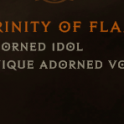
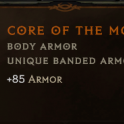
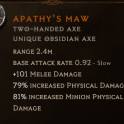
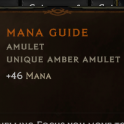
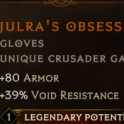
![[SELFPLAY] ERASING STRIKE VOID KNIGHT SENTINEL STARTER BUILD MERCHANT'S GUILD ONLY NO RANK REQ - TOM](https://odealo.com/uploads/cache/thumb_124/uploads/auction_images//1953905485683c7b2cbc34a.png)
